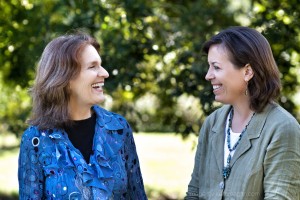Core Concepts Of Birth Psychology With Marti Glenn, PhD, and Kate White
SUBSCRIBE TO KINDRED’S YOUTUBE CHANNEL TO GET ALERTS OF KINDRED’S FORTHCOMING VIDEOS, INCLUDING KATE’S INTERVIEWS WITH MARTI GLENN.

In September 2014, I spent the day making a film with Dr. Marti Glenn, founder of the former Santa Barbara Graduate Institute and current co-director of theSTAR foundation. We were making a short film on the core body of knowledge for prenatal and perinatal health and healing, and some implications for policies for families during the childbearing years. Dr. Glenn has been instrumental in the education of professionals in prenatal and perinatal psychology, and she has helped to create change in policies in California where she lives.
Glenn, with her dedication and pluck, initiated a concept of “Pre to Three” to replace our past thinking of “zero to three” while working with the California Infant and Early Childhood-Family Mental Health Training Guidelines Workgroup, a consortium appointed by the California Department of Mental Health. The group that set training standards for these professionals quickly recognized that we need to include the prenatal experience in our work with child and family mental health. Practitioners, educators and policy makers are now in agreement that the neuroscience of relationship, pioneered by Allan Schore and Dan Siegel with their focus on interpersonal neurobiology, affective neuroscience and attachment has really changed the way we are seeing the pregnant and newborn family. Mainstream science and parenting is climbing on board, evidenced by an August issue of Science magazine boasting “parenting begins before conception.” Glenn has also been training professionals across the country and in Europe who work with young families dealing with early trauma, adoption, fostering, domestic violence, and mental health issues, which continues to produced positive outcomes for families.
My conversation with Glenn was comprehensive. I am working with her and a team of pre and perinatal professionals to develop a new story about babies, and the families with them during the childbearing year.(hat tip, Lisa Reagan). Here is our short list, supported by research and studies and is on the verge of being accepted for program development, practice and policy.
1. Babies are conscious, intelligent and aware.
2. Babies remember birth; it is a big experience.
3. Babies feel pain.
4. Our DNA expression is influenced by our environment.
5. We develop in relationship.
6. Attachment begins before birth.
7. Our earliest experiences (prenatal through age 1) create a template for our mental models of the world.
8. This template is what we live out of, and it is our job to become aware of it, especially if it is filled with patterns that don’t serve us as adults.
I will be working to create a literature and peer review of the data that supports this list in the coming months. Dr. Glenn is a participant in the APPPAH Professional Development Program, where you purchase and download talks, handouts, articles, chapters, and see videos about her work.
The programs and classes promoted by the Center are based on the science of these core principles. Please come down and see what we are doing.
Kate


Marti and the star foundation helped me understand the impact of my childhood and how it relates to my inability to form healthy relationships. Likewise, I meet a wonderful woman while at the retreat and am finally in a loving and satisfying relationship. Thanks Marti for your support!